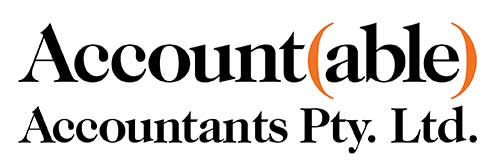30 June is nearly here – Last few weeks to save some money!

With just a few weeks to go until the end of the tax year, you might think it’s too late to knock your taxes for the year into shape. However, even this close to EOFY, there are still some last-minute planning opportunities to maximise your refund for the year.
So, what should you be doing as we head towards June 30?
DON’T FORGET TO PAY YOUR SUPER, TAKE YOUR PENSION, CLAIM ANY CENTRELINK ENTITLEMENTS, LODGE YOUR 2020 TAX RETURN & DEFER BUSINESS PROFITS – PREPAY EXPENSES, DELAY INVOICING, INCURR EXPENSES
Pay your Superannuation
If you are interested in saving some real tax money, make contributing to your super fund one of your strategies, not just in the lead-up to year end, but throughout the year as well, so that you spread out an otherwise high impact on your cash flow.
Take care not to exceed the concessional cap, as this will defeat the purpose of the exercise, the excess being taxed at your marginal tax rate.
Be prepared well in advance of 30 June and ensure your fund receives the contribution to its bank account before this date to secure your deduction. Also, be sure to submit a notice of intent to claim a deduction to your super fund.
Take your Pension
Many self-managed superannuation fund members with pensions will be checking the amounts paid from their fund so far to make sure the minimum payment requirements will be met.
Others who take payments only at the end of the year will need to double check the amount that needs to be paid from their fund and ensure it all happens before midnight on June 30, 2020.
Remember a pension payment must be physically paid out of the fund – a journal entry is not sufficient.
Repair & Maintenance Costs
Make payments for repairs and maintenance (business, rental property, employment) BEFORE 30 June.
Planned purchases
A useful way to absorb excess profit for tax saving purposes is to bring forward any planned purchases that you may have. By planned purchases, we mean necessary spend that is planned for some point in time in the near future. Think about any planned spend that you could potentially bring forward to before 30 June.
Ensure that your planned purchases are necessary, so that you are not buying unnecessary items purely to save tax. Keep your cash flow in mind at all times. If bringing forward purchases is likely to strain cash flow, it may not be the right time to apply this strategy.
Prepay Expenses
How can you best make use of expenditure items that are “prepaid” from a tax savings point of view? Prepayments are spent in the current year that covers things to be done in a later year. This type of expenditure involves the money being outlaid upfront, but the provision of goods or services stretches out across a period in the following year(s).
Prepayments are generally tax deductible across what is referred to as the “eligible service period” or ESP. The ESP is the period during which the thing being paid for is done. Examples of prepaid expenses that may be immediately deductible are: rent, insurances, subscriptions, registrations, memberships, utilities and interest.
Delay Invoicing
Look at the invoices you have coming up, particular for major sales or projects. Can you hold back on issuing them until after June 30? If you do, you won’t have to pay tax on the income until the following year, giving you more cash in hand.
Year-end stocktake/Work in progress
If applicable, you need to prepare a detailed Stock Take and/or Work in Progress listing as at 30 June 2020. Review your listing and write-off any obsolete or worthless stock items.
Write-off bad debts
Review your Trade Debtors listing and write-off all bad debts BEFORE 30 June 2021. Prepare a management meeting document listing each bad debt, as evidence that these amounts were written off prior to year-end and enter these into your accounting system before 30 June 2020.
Offset capital gains against capital losses
If you’ve disposed of shares or any other form of investment and you know you’ve made a capital gain, take a look at your investment portfolio and consider disposing of any assets which you own which you know are sitting at a loss. The resulting capital losses can be offset against the capital gain.
Be careful though if you sell shares sitting at a loss and then buy them back in the new tax year. The ATO takes a hard line against so-called “wash sales”. This refers to the sale of an asset before the year end and the purchase of a substantially identical asset immediately after the year end. The ATO regards the purchase and the sale as effectively the same asset and has issued a Tax Ruling which states that they can apply the anti-avoidance provisions to cancel any tax benefits and apply penalties
Car expenses
If you use the log-book method, now is the time to check that your log-book is up to date and that you have all the receipts, invoices and records of journeys that you will need to calculate and substantiate your claim.
If you use the cents per kilometre method, you will still need a record of all work-related journeys during the year.
The ATO will be looking particularly closely at car claims this year, with average claims expected to be substantially down due to COVID-19, so it’s important that your records are correct and complete.
Seek expert help
Aussies have been presented with new milestones this past year; Jobkeeper, cashflow boosts, working form home as well as purchasing a new home or investment property, investing in the share market, investing or trading in cryptocurrencies, launching a new business, pivoting from an existing business model, or being forced into early retirement, all of which have major tax implications.
Prevent an Audit from the ATO
Australians who have done well on the share market, with property or even with Bitcoin during the past year face being audited if they get their returns wrong. Australians can face a 25% penalty for carelessly miscalculating how much they earned from shares, investment properties, and now cryptocurrency.
